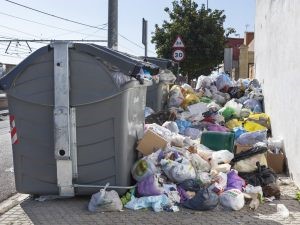
Violations on differentiated waste collection: no to illegal sanctions for the administrator.
Violations on differentiated waste collection: no to illegal sanctions for the administrator.
The Cassation clarifies why abandoned materials and improperly used bins do not justify the sanctions against the administrators.
Giuseppe Bordolli Scientific manager Condominioweb 16/02/2023.
According to a decision of the Court of Palermo, based on the provisions of art. 3 of the decriminalization law (law n. 689 of 1981), for the purposes of the legitimacy and validity of a sanction, it is not sufficient that the objective details are ascertained, but it is necessary that the offender is fully identified and that his conduct is negligent or fraudulent (Court of Palermo 22 October 2020 n. 3335).
In fact, this provision, as the judge himself specifies, establishes the general principle of personal responsibility for the administrative offense and requires that the imputability of the administrative sanction be based on the principle of personal responsibility for the offense committed.
The Municipality, therefore, before imposing a sanction for violations related to waste collection , should proceed with the identification of the person responsible for the administrative violation .
If the principle of personal responsibility for the administrative offense applies , the objective responsibility of the condominium must be excluded since the administrative sanction is attributable only to the actual offender (Giudice di Pace Napoli 22 August 2016 n. 369).
It is not even possible to speak of a guarantee position of the condominium, which is a mere management body without a legal personality distinct from that of its condominiums.
In order for liability to be attributed to a third party, it is necessary, as in criminal law, for the third party to have the obligation to prevent the perpetrator of the infringement from committing the offence.
It follows that the condominium is not obliged to supervise the bins and what is given inside.
Moreover, any interpretation that could lead to holding the condominium administrator personally responsible for violations committed and implemented by the condominiums must be excluded.
These principles have recently been reaffirmed by a recent decision of the Cassation (order of 14 February 2023 n. 4561 ).
Violations on differentiated collection and illegal sanctions against the administrator. The story
A condominium and the managing company decided to react against the injunctive executive decisions of the Municipality which, following the assessment reports, had sanctioned them for the violation of the municipal regulation on urban waste , i.e. for the presence, inside the bins for the differentiated collection of waste illegally delivered. At first instance, the appellants were unsuccessful. The Tribunal likewise rejected the appeal.
In particular, the same Court rejected the objection of lack of passive legitimacy of the managing company (which had denied being the administrator of the sanctioned condominium), noting the following: the assessment reports contained the data of the condominium administrator, data also present in a circular posted inside the condominium; the opposing company had not provided evidence to the contrary.
On the merits, he stated that the joint liability of the condominium and its administrator was based on the fact that the waste containers were located in places owned by the condominium and that the failure to identify the material perpetrators of the violations did not exempt the condominium and its administrator from liability .
However, according to the Court, the condominium had no entitlement to oppose the contested administrative decisions, given that they, as well as the assessment reports, had been issued against another condominium.
The decision of the Supreme Court
The Court of Cassation specified, as a preliminary step, that the violations resulting from the reports and the consequent contested injunctive decisions did not concern the appellant condominium but another condominium building in the same street, with another street number. The condominium’s appeal was therefore declared inadmissible.
That said, the Supreme Court agreed with the managing company. As noted by the supreme judges, the contested measures erroneously held the administrator jointly responsible for the acts put in place by the individual condominiums. No rule of law or principle on the subject authorizes affirming the thesis of joint responsibility of the administrator for the violations committed by individual condominiums.
In particular, according to the opinion of the Cassation, the condominium administrator can be called to answer, even towards third parties, only for his own deeds, both commissive and omissive , but not for the deeds carried out by the condominiums.
In any case, the joint liability of the administrator – who manages the common good but has no availability in the material sense – certainly cannot find title in art. 6 law n. 689 of 1981, according to which the owner, the usufructuary and the owner of the right of enjoyment of the thing that served or was destined to commit the offense are responsible for the administrative violation.
Moreover, the rules of the regulations for the management of municipal waste do not provide for any connection to be paid by the administrator in terms of solidarity with the perpetrator of the incorrect use of the bins.
Source: https://www.condominioweb.com/violazioni-sulla-raccolta-differenziata-dei-rifiuti-no-a-sanzioni-illecite-all administrator.20287#2
GECOSEI by Giuseppina Napolitano


